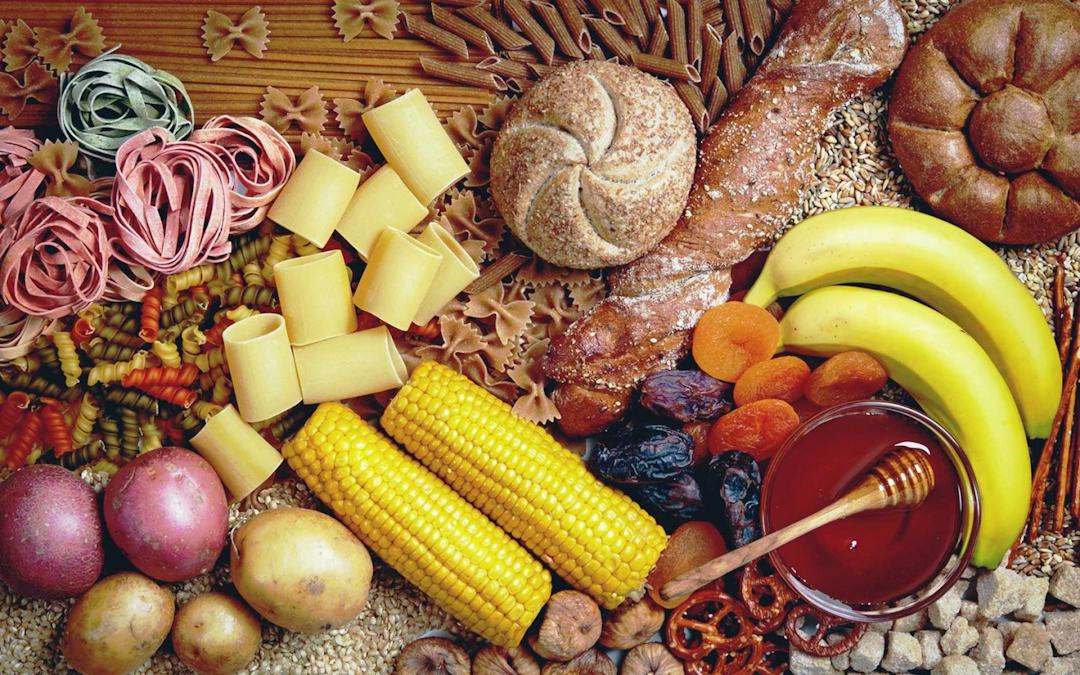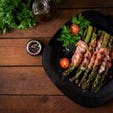Carbohydrate foods are not evil, but we are very reductionist when it comes to nutrition. We need a macronutrient or food to be good or bad. When we label a food as good or bad it removes the burden to think for ourselves about how a food does or doesn’t fit into your own individual context.
As a society, we should have learned from our past mistakes vilifying dietary fat. It seems like many people are making the mistakes these days but with carbohydrates.
When it comes to nutrition, context is king. Everybody has different goals, genetic predispositions, sleep habits, familial medical history, metabolic flexibility, ancestry, stress and activity levels that shape their dietary needs.
Your carbohydrate consumption should be based on your needs and individual context. An athlete is going to require more carbs than a sedentary desk jockey who sits all day.
Those who are obese or suffering from metabolic problems generally don’t tolerate carbs very well, so they’ll do much better with fewer carbohydrates.
There are many indigenous cultures that eat a carbohydrate-dominant diet such as the Kitavans that are in peak health. The carbohydrates in these indigenous cultures are from nature – not cereal grains, cookies and sugar.
Carbs are not evil but a lot of times the poison is in the dose.
The Good: Carbohydrate Foods That Come From Nature
 The sources of carbohydrates that come from nature are rich in vitamins and minerals and are packaged with enzymes that are beneficial to health.
The sources of carbohydrates that come from nature are rich in vitamins and minerals and are packaged with enzymes that are beneficial to health.
Some great carbohydrate foods to consume are: spaghetti squash, sweet potatoes, white potatoes, plantains, acorn, squash, beets, parsnips, winter squash, cassava, taro root, yams, white rice and gluten free oats.
The carbohydrates that are available from nature do not cause the same kind of blood sugar surges, insulin spikes, hyper palatability or digestive problems like more processed carbs do. Have you ever eaten a bowl of pasta and felt tired/bloated afterwards? You would be hard-pressed to get the same feeling from eating blueberries or a sweet potato.
Carbohydrates do play some important roles in the body. Carbohydrates provide a quick source of energy for muscles, and help to spike insulin to shuttle amino acids into muscles for recovery after exercise.
Glucose is a source of fuel for the brain, but the brain and heart can also be fueled by ketones. Carbs contribute to the mucus that protects your stomach from acid as well!
Where To Go From Here?
Carbohydrates serve a lot of different purposes in the body, but the source and quality of those carbs matter for your health and fat loss. Your intake of carbohydrates should depend on your individual context including your metabolic health, activity level and how well you tolerate carbohydrates.
Experiment with different intake levels to see what works best for you as an individual, you may find a more optimal way of fueling your body you hadn’t considered before. Figure out where you fit on the spectrum from highly active athlete to sedentary. This will serve to give you a pretty rough idea of how many carbs you need.
The average sedentary person looking to lose weight could benefit from lowering their carbohydrates and focus on consuming enough healthy fats, protein and vegetables with a serving or starches at night.
Folks who have metabolic problems would do much better going low carb, and should experiment with a ketogenic diet. In a ketogenic diet, the majority of your calories come from healthy fats, moderate protein and a trivial amount of carbs from non-starchy vegetables.
Those who are serious athletes or are frequently engaged in explosive physical activity such as CrossFit or mixed martial arts are going to need a source of starch at each meal for recovery and to prepare for the next training session.
Here Are a Few Benefits of Carbohydrate Foods

● Provides fuel for the brain.
● A quick source of fuel for the muscles.
● Helps to regulate protein and fat metabolism.
● Rich in fiber, which aids in the regular elimination of waste.
● Assists in the growth of body tissues such as bone, skin and muscles.
● Helps with muscle recovery.
Why Gluten-Free Is Not Enough
The switch to a gluten-free diet can be a good transition step, but it’s not for everyone and you’ve got to be careful about the products you’re selecting. After all, just because a food is gluten-free, doesn’t mean that it’s healthy or less processed.
Gluten-free has become a marketing term, so many of the gluten-free products you’ll find are actually highly processed and contain unnatural additives. Avoid these products at all costs.
If you want to try a gluten-free diet, that’s entirely up to you (unless you’re actually sensitive to gluten – then you should avoid it at all costs). It can certainly help you avoid processed foods. However, the better step would be to eat single-ingredient foods that you can’t find in grocery aisles – produce and meat.
The Only Non-Essential Macronutrient: Carbohydrates
Carbohydrates are digested and broken down into sugars. The sugars from carbohydrates are released into the bloodstream to be used.
But there’s no such thing as an essential carbohydrate. Your body can get by without carbs. In the absence of carbohydrates the body uses proteins and fat to create glucose (blood sugar). However, as I stated earlier, completely removing carbs from your diet may work for some, but not others. Keep this in mind at all times.
If you do decide to remove carbs from your diet, make sure you greatly increase the amount of fat you’re eating and keep track of your energy levels and mood. If what you’re doing isn’t making you feel good, tweak your diet until it does.
Great Sources of Carbohydrates
 The best sources of carbs are found in nature in their whole form and have not been processed.
The best sources of carbs are found in nature in their whole form and have not been processed.
● Local and seasonal vegetables and fruits
● Spaghetti squash
● Sweet potatoes
● White potatoes (if you can tolerate them)
● Plantains
● Acorn squash
● Beets
● Parsnips
● Brussel sprouts
● Cauliflower
● Asparagus
● Salad greens
● Parsnips
● Eggplant
● Salad Greens
● Tomatoes
● Berries
● Carrots
● Peppers
● Pumpkin
● Pears
● Radishes
● Kohlrabi
Carbohydrate Foods to Avoid
● Bread
● Pasta
● Chips
● Grains
● Crackers
● Fruit Juice
● Sugar
● Soda
● Sweeteners (especially Agave)
● Breakfast cereals
● Corn
● Alcohol
● Granola bars
● Packaged gluten-free products
● Muffins
● Baked goods
● Oats with added sugar/sweetener
● Energy drinks
● Highly processed “health” bars

)





